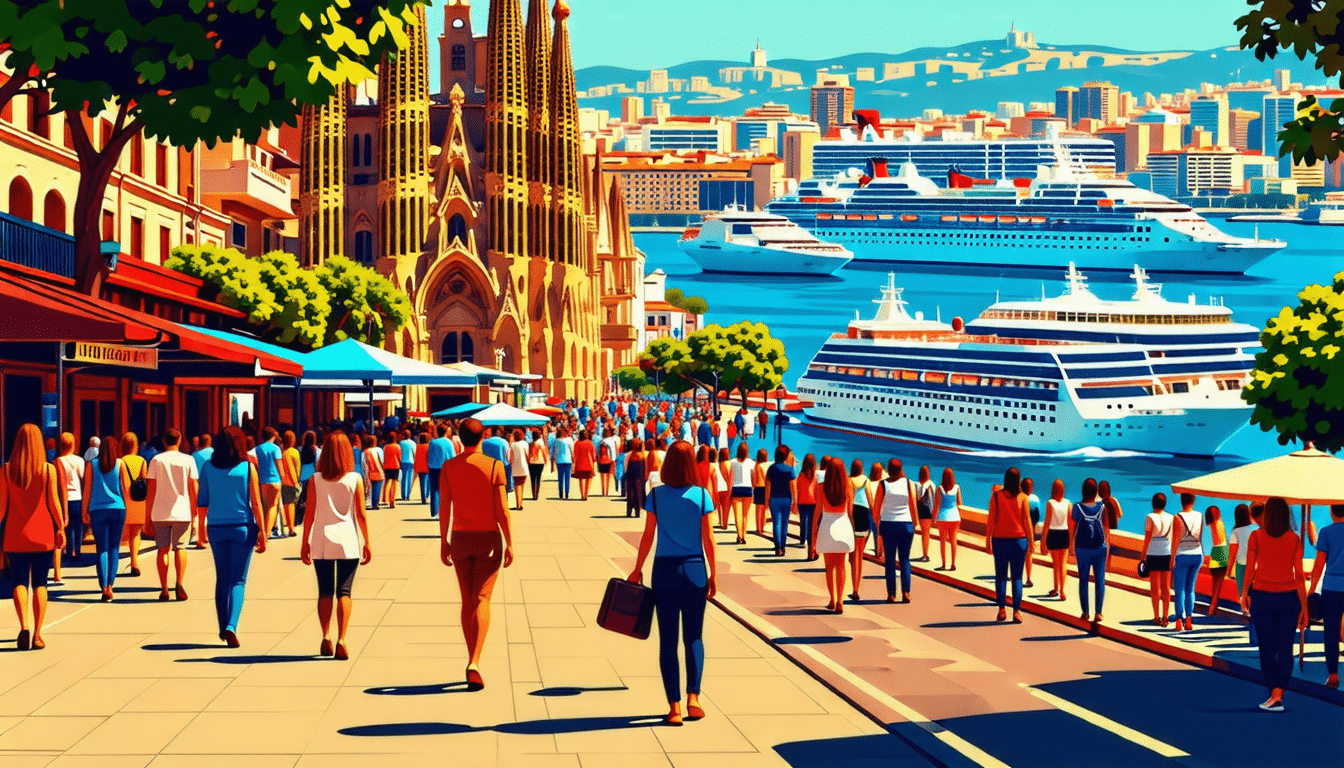|
IN SHORT
|
Barcelona, an emblematic city of the Mediterranean, attracts millions of visitors each year, including a growing number of cruise passengers. Faced with this influx, local authorities are considering increasing the tourist tax for this type of tourist. But what are the real motivations? Beyond simple financial considerations, this increase aims to respond to crucial economic, environmental and social issues. In this analysis, we will explore why Barcelona is rethinking its tourism strategy and the impact this could have on the city and its residents.
À lire British influencers discover crayfish and po’boys for the first time in Lake Charles
A Reassessed Tourist Tax #
Barcelona is taking a step towards regulating its mass tourism by substantially increasing the tourist tax for the cruise passengers present less than 12 hours in the city. Currently set at 7 euros per day, this tax aims to compensate for the economic and environmental impact of fleeting visitors.
Dealing with Overtourism #
Barcelona officials observed that cruise passengers stopovers use public spaces intensively without generating lasting benefits for the city, which fuels a feeling of saturation among residents. In 2023, Barcelona welcomed 12 million tourists for a population of barely 1.7 million inhabitants, exacerbating local tensions.
The Objectives of this Increase #
Barcelona City Hall is adopting this measure to fight against the consequences of tourist overpopulation and to fund municipal projects, such as school air conditioning, without imposing additional costs on local residents. This tax repositioning aims to promote tourism that is more respectful of the destination.
Impact on Housing #
Alongside the increase in tourist tax, Barcelona is fighting against the dizzying increase in housing prices, directly linked to tourist pressure. In ten years, rents have increased by 68%, making city centers inaccessible for many locals. The town hall also plans not to renew the licenses of the 10,000 furnished tourist accommodations currently authorized by 2028.
À lire Spain reaches a new peak in tourist attendance in the first quarter
Local Protests and Reactions #
Demonstrations, sometimes spectacular, broke out across Spain against the overtourism. In Barcelona, activists sprayed tourists with water guns to express their dissatisfaction. This widespread discontent underlines the urgency of acting to preserve the quality of life of residents.
Future Actions and Ongoing Discussions #
The proposal from Jaime Collboni, mayor of Barcelona, still needs to be discussed with the Catalan government to be implemented. However, it has already attracted attention and could serve as a model for other cities facing similar challenges related to overtourism.
Key Findings #
Barcelona’s efforts to increase tourist tax cruise lines aim to create a balance between tourist reception and the quality of life of residents. If this approach is well received, it could profoundly transform the tourist face of the city and, potentially, inspire other tourist destinations to follow the same path.


